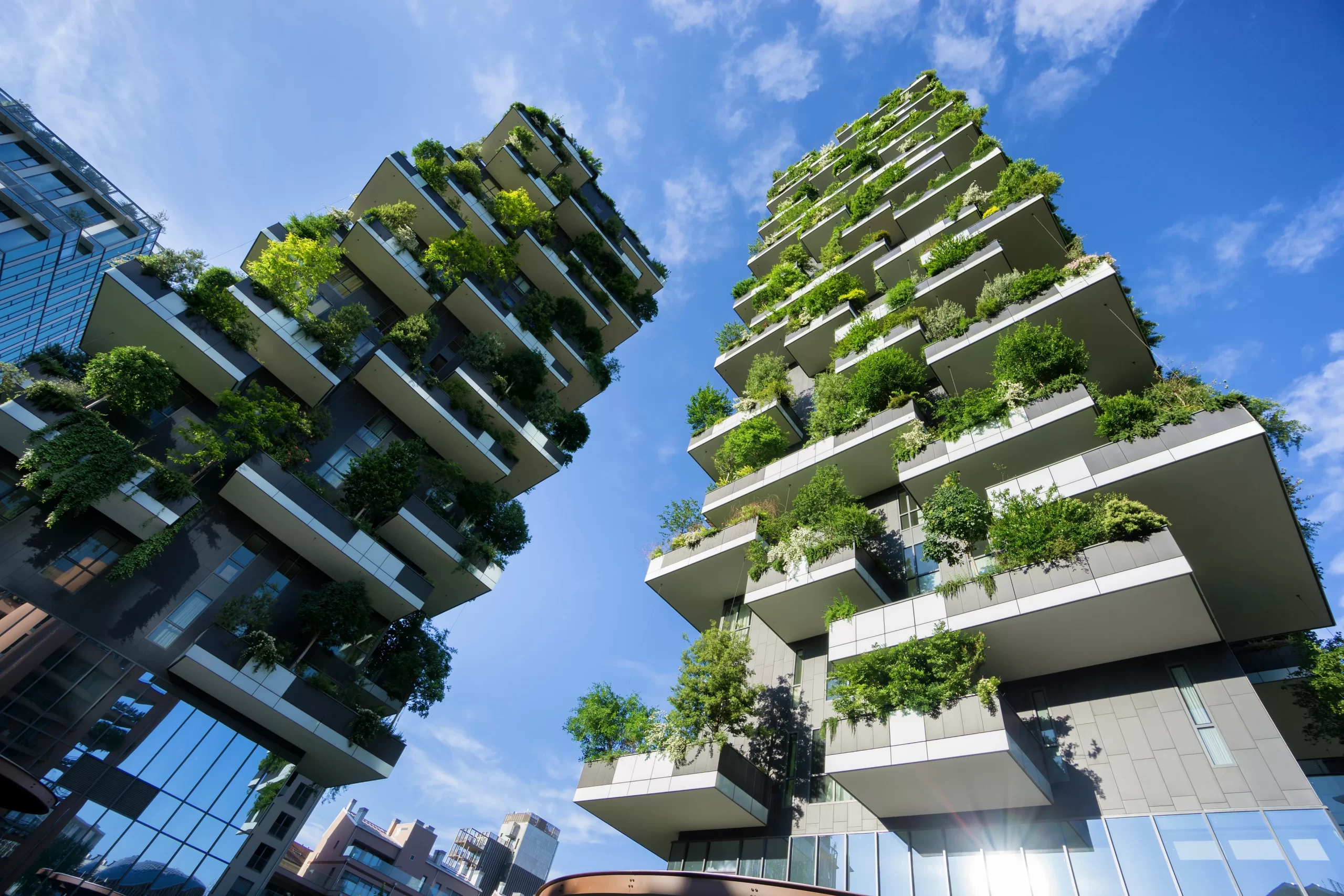Green architect
Courtesy : gosmartbricks.com
This entire process of building design that reduces the harmful effects on our health and
environment is known as green architecture or green design. Green architecture is a sustainable practice of green building design which is designed and constructed with keeping the environmental standards in mind. And the architects involved in the making, building, and designing of such buildings are known as green architects.
Green architects generally work with the sole vision of creating buildings that are energy efficient and environmentally friendly. They apply their architectural principles and design along with the use of sustainable building materials and practices to design buildings and amenities that lessen negative effects on the environment. They also use renewable and non-toxic resources during construction and implement their building projects with unique methods of water conservation, waste management, energy efficiency, and self-sustainability. It’s their job as a green architect to come up with the ideas to integrate all that efficiency into a building.
Components
Green architects possess standard degrees in architectural design and practice and may have taken extra qualifications to exhibit their green or environmental knowledge. The Global Green Building Council program also certifies qualified individuals as GGBC Green Associates. Qualified candidates have the option of taking GGBC courses in preparation for the certification examination. Applicants are designated as GGBC Green Associates upon successfully completing the exam. Other similar kinds of certifications that the green projects can get are Green Rating for Integrated Habitat Assessment, GRIHA, Global Green Building Council, GGBC and Bureau of Energy Efficiency, BEE.
Importance
Green architects have their own value in the society. The most significant sign of an architect’s competence in green matters is their skill and experience. Working with the environment and the ecology of the planet is completely different from listening to a client’s needs and translating them into a workable design plan. It takes a lot of expertise to implement sustainability in the design, right from initial consultation to site visit, early designs to liaison with builders and plan modification.
Benefits
Green architects add significant value to the environment. Green buildings secure our ecosystems, biodiversity, enhance the quality of water and air, minimize solid waste and conserve natural resources. In fact, when compared to a conventional building, green buildings save 26 percent energy, 13 percent less cost maintenance, with 27 percent higher occupant satisfaction and results into 33 percent less greenhouse gas emissions. These green buildings come up with remarkable water-saving strategies to optimize the use of rainwater for outdoor purposes, reducing the need to tap into underground sources.
Green buildings offer several health benefits like indoor air quality, temperature regulation, optimal inhabitant comfort and health, reduced burden on local infrastructure and a higher overall quality of life. Other benefits include less operational costs, increased asset value and profits, higher worker productivity and as they are easier to maintain than traditional buildings, owners are likely to experience lower vacancy rates and considerably higher property values.
The bottom line

A green architect is responsible for designing buildings that can be sustainable over the course of its lifetime. They need to implement design choices that can help the building in lowering its negative impact on the world. Green architects should also continue their education to support their green architecture licenses and their green building rating credentials. Though this is a challenging job, the industry is growing in popularity and there is a vast scope for being innovative and making a name for self.



